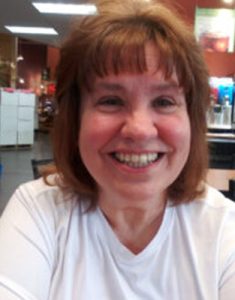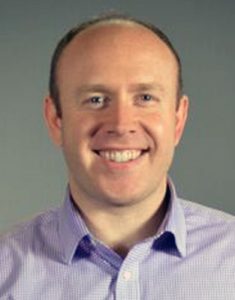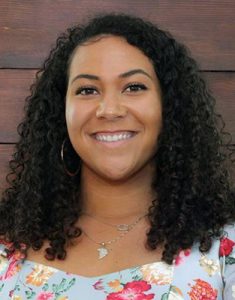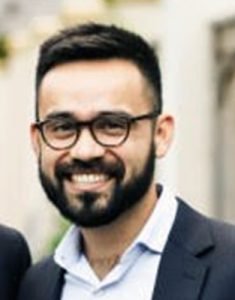
While at Hastings College, RuAnn (Ulmer) Root ‘86 was skeptical about her classes in writing, public speaking and nonprofit accounting — requirements for her Human Service Administration degree.
“To be honest, I thought I would never use the information from those classes. However, have they ever come in handy,” said executive director of Court Appointed Special Advocates (CASA) in Hastings, a position she’s held for 22 years.
She’s used those skills to expand the agency’s programs into six counties, offer transitional living for youth aged 16-22 and mentor young professionals.
Root is one of many alumni for whom a Hastings College education, rooted in the liberal arts and practical experiences, provides a foundation for serving others. They carry flames lit at Hastings College into their current communities as nonprofit executives, employees, and board members.
A Life in Community

When Tim Moore ‘07 was earning his religion and media degree at Hastings College, then-director of the Vocation and Values program and religion professor Dr. Trace Haythorn frequently assigned writings by Father Henri Nowen. Through Nowen, Moore learned about L’Arche, an organization of intentional communities throughout the world pairing people with and without intellectual disabilities.
Upon graduation, Moore took a position with L’Arche New Zealand and remains with the organization today as executive director of L’Arche Atlanta.
“The relationships have kept me in L’Arche,” said Moore. “Whether it was Victor in New Zealand, Mo in Washington DC or John in Atlanta, I have been given the gift of friendship with incredible people who have shaped me and made my life all the richer.”
On a daily basis, the core members — those with intellectual disabilities — go about work with the support they need from their assistants.
“Picture a big family doing daily life where each person has a different job, school, or set of activities/hobbies to engage,” said Moore. “Some of the members just happen to need a bit of extra support in very specific ways.”
Driven by ‘Lived Experience’

Eboni Nash’s work in the nonprofit sector is motivated by her father’s incarceration more than anything she learned in the classroom.
“His absence had a huge impact on my childhood development,” said Nash, a 2019 graduate. “I believe society could have created a safer place for me to live and learn than what was given to me initially.”
Equipped with the skills she honed as director of Hastings College’s Food4Thought nonprofit and her master’s in Theological Studies from Harvard Divinity School, Nash has returned to her native Colorado to build a better world.
Now, as vice president of development and communications for CommunityWorks, Nash reports to Robert Andrews ‘07, the organization’s president and CEO, who is also an HC Trustee. Additionally, she serves as Diversity Equity and Inclusion Program recruitment manager for Metropolitan State University of Denver.
“At CommunityWorks, I help strategize and facilitate connection with the current workforce for a diverse population of job seekers,” she said. “At MSU Denver, I help advocate to Colorado employers on how they can create an equitable and accessible workplace for the incoming talent pipeline.”
Thanks to flexible work environments and complementary missions, she is well-positioned to facilitate collaboration within the Denver community. Additionally, these positions allow her to apply her “lived experience” as the child of an incarcerated parent, a first generation college graduate, and a person who has experienced food insecurity.
“Many times, the people making decisions have no context nor experience with the scenario in question,” said Nash. “If we were able to advocate for lived experience and how it might impact historically excluded voices, then we would be able to create a holistic and equitable system for all.”
Changing Lives in West Africa

Grant Nagaki ‘13 might just be 2022’s real-life version of Superman. During the day, he’s seeking to improve mental healthcare delivery systems. In his free time, he’s managing the nonprofit he co-founded in Ghana.
Traveling to Central America during Hastings College’s former J-Term awoke Nagaki to a larger world in which he could help others.
“My experience at Hastings helped me experiment with volunteer work and with organizing such work. I was able to host a few fundraisers and start pitching ideas,” said Nagaki.
A port stop in Ghana as part of Semester at Sea inspired Nagaki and a fellow student to found the Senase Project and put his fundraising and organizational skills to use for a greater good. This poverty elimination organization has morphed into Aya, a nonprofit with the mission to “empower children through the expansion of equitable access to quality education.”
Equipping students in villages with tuition, uniforms, books, supplies, and food hasn’t been easy as of late.
“We were unable to travel to Ghana during the pandemic, but the work still remained active through our field officer in Ghana,” he said.
Nagaki, who currently lives in New York City, specializes in all things financial, legal and operational for Aya. He credits Hastings College experiences with preparing this vocation.
“I believe the close-knit community at Hastings gave me the comfort and opportunity to [lead a nonprofit organization],” he said. “It is intimidating work, but when you have a community who supports you, it allows you to be so much more confident and not fear failure.
Lives (Mostly) Balanced
Burnout in the nonprofit sector can run high. To maintain their drive to serve, Moore and Root prioritize the demands on their time.
“Two things that I’ve found that are important for me: I need to invest in friendships that are friend-first relationships,” said Moore.
The second for Moore is therapy.
“Leading a service provision organization through a pandemic was brutal and I’ve found that my leadership is more grounded when I’m living from a place of wellness and integration,” said Moore. “Therapy has played an important role in helping me live from that place more often.”
Root prioritizes presence based on where she is at the given moment.
“When I leave work — I LEAVE WORK — I do not check emails, talk about what I did at work with friends or family to nurture what I value and refill ‘my bucket,’” Root said. “I have a passion for the work I do, and consider it a privilege every day to work in this field. I hopefully make just a small difference in the lives of families.”

